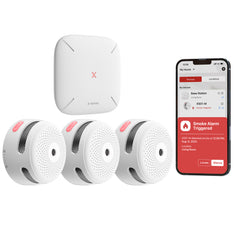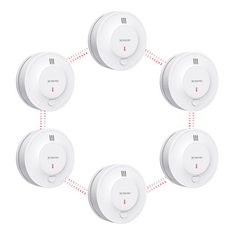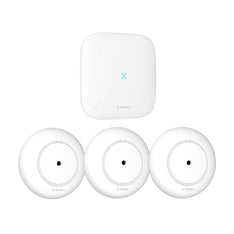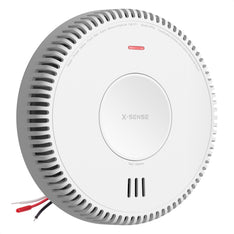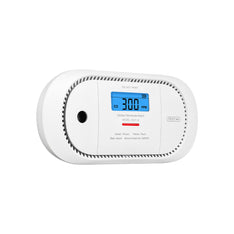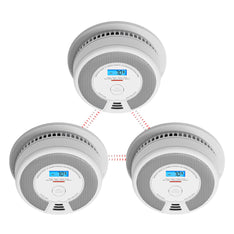Tips for Home Safety in 2022
Wed, May 20, 2020
Household fires are the major reason for casualties in homes. And most people don't know what to do at that time of emergency and how they can escape a fire. The safety and security of your family are important. Here we are going to talk about all the common causes of household fires and what are the home safety tips. Knowing about the causes and safety tips will enable you to ensure the safety of your home so that you and your family may protect them and escape a fire.
The Most Common Causes of Household Fires
To avoid a fire in your home and make sure that you and your family are safe, it is important that you what are the most common causes of household fires. These causes are given below
1. Cooking equipment:
One of the sources of household fire is the kitchen. The pans and pots can overheat and result in fire very easily.
2. Heating:
If you have portable heaters, make sure you place them a meter away from any item that can catch fire easily such as laundry, curtains, etc.
3. Smoking in bedrooms:
If you don't put out cigarettes properly, it can start a fire if it comes into contact with flammable material. As the butt may stay lit for a couple of hours.
4. Electrical equipment:
Electrical equipment is a source of household fires if not used properly. For instance, if a toaster is faulty, it can start a fire.
5. Candles:
In many cases, household fires are started due to lit candles that are left unattended in your home.
6. Curious children:
As we all know kids are very curious, sometimes they just want to see what happens if they set fire to something.
7. Faulty wiring:
Faulty wiring in your home can set fire. You know that you have faulty wiring if lights get dim if you use an appliance or fuses often trip the circuit.
8. Barbeques:
Barbeques can be a reason for household fire if not kept away from home, tree branches or plants, or tablecloths.
9. Flammable liquids:
Some liquids such as petrol or kerosene are highly flammable.
10. Lighting:
Light fittings or lampshades can become heated and cause a fire.
What Are Some Good Home Fire Safety Tips
Now that you know what are the common causes of household fires, let's have a look at the fire safety tips.
Safety in the Kitchen:
- Familiarize yourself with the use of fire extinguisher and fire blanket.
- Never leave the cooker unattended. Use a fire blanket instead of water to put out the fire.
- Make sure that your cooker is clean from grease.
- Develop safe cooking habits.
- Treat electrical leads and appliances with caution. Don’t cross leads over cooker rings.
Safety in Living Rooms:
Open fires:
- At open fires, make sure you have an effective spark guard.
- Clean chimneys twice a year.
- Don't leave any combustible material near the fire.
Smoking:
- Don’t smoke while drunk or feeling sleepy.
- Keep lighters and matches away from children’s reach.
- If your smoke, use ashtrays.
Electrical leads:
- Don’t use fraying or deteriorating plugs and leads.
- Don’t overload sockets.
- Switch off and unplug appliances when not in use.
Portable heaters:
- Follow the instructions given for portable heaters.
- Keep flammable materials away from heaters.
Safety in bedrooms:
- Avoid smoking in bedrooms.
- Regularly check your electric blankets. Use them according to instructions.
- Before going to bed, switch off and unplug appliances.
- Don't leave candles unattended in the room. Put them in the proper holder to prevent candles from falling over.
- Before sleeping, make sure that all doors that safeguard your escape routes are closed.
Home Checklist:
- Do you have a smoke detector at each level?
- Are lighters and matches out of your children’s reach?
- Have you stored petrol in a safety container?
- Are your electrical appliances in good condition and you are using them properly?
- Do you regularly clean chimney?
- Do you regularly clean kitchen vent?
- Do you have a fire extinguisher and know how to use it?
- Do you use a fireguard?
- Do you store combustible material away from heaters or cookers?
- Do you regularly clean your chimney?
- Do you clean the lint collector on your clothes dryer?
Clear Your Escape Routes:
At times when you need an escape, doors, and windows in your home are blocked which hinders your escape. Unblock your exits. Identify at least two exit routes in each room and make sure that everyone can use those exits. Also timely planning and practicing a fire escape plan and help you escape any damage from fire.
